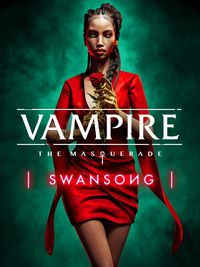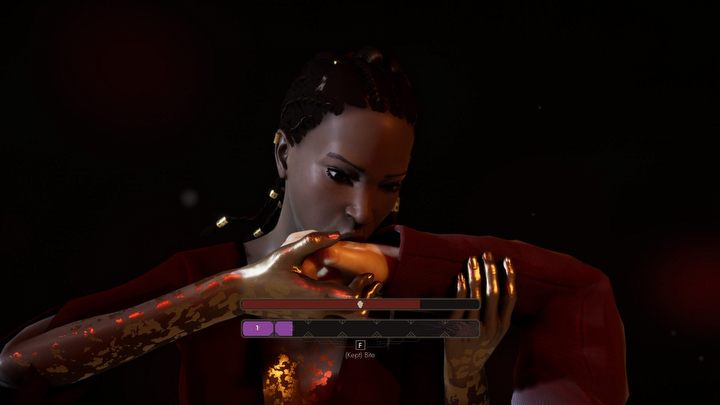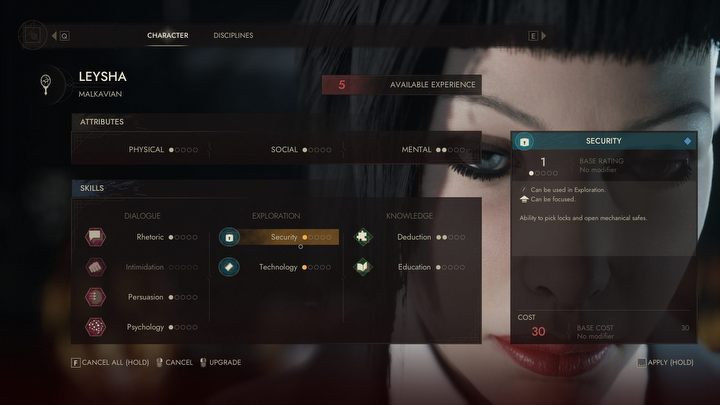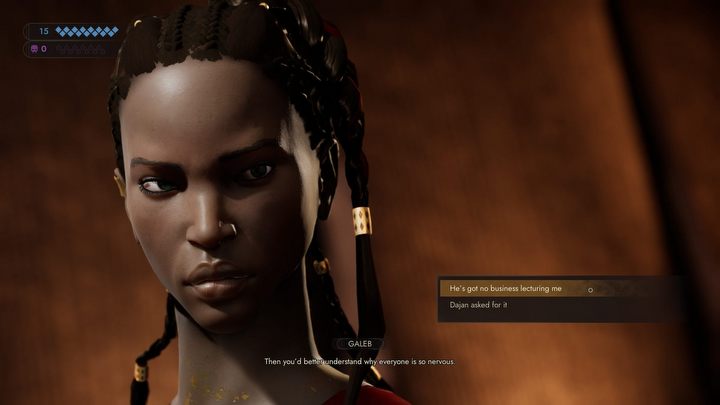Vampire Swansong Review: Choose wisely
Vampire: The Masquerade - Swansong isn't ideal. But after a rather rough and overwhelming start the mystery wins you over. Here's our review.
The review is based on the PC version. It's also relevant to PS5, XSX, Switch, PS4, XONE version(s).

When you think of vampires, a few things instantly come to mind, but you normally put Boston, socialites, or even detectives into that equation. Vampire: Swansong offers a different approach to a vampire game as an RPG that mixes detective-like investigations with a choice-consequence system.
It starts off by thrusting you right into a mystery that involves deceit, politics, and betrayal, and continues to unfurl through the course of levels that incorporate conversations, puzzles, and lots of exploration. Fans of Telltale and Hitman games will appreciate Swansong’s approach to discovery, but its lore-heavy storyline and questionable design choices can alienate others.
A Wealth of Lore
Swansong follows three different vampires who each have been tasked with finding out why their Boston-based Camarilla has been attacked. Its exposition is a whirlwind of information, names, and lore you probably won’t know about right away unless you have played games in the World of Darkness series before. Each time Swansong mentions a phrase, subject, or special designation word like childe, sire, vessel, etc. a little blurb shows up on your screen letting you know this information has been added to your codex. If you are new to the series, you will bound to get lost at times following along the overall story.
Now, while most games start off introducing characters to their world, Swansong essentially lobs these codex entries at you mid conversation so if you don’t know what they mean, you better read up on it—and there is a lot to read. This normally isn’t a problem, but this method of introducing players to its universe distances you from the game and forces you to make the effort to educate yourself without being taught this organically through its gameplay. If you are not used to lore-heavy games where reading actually matters in your progression, you won’t like Swansong’s early approach to storytelling.
- Beautiful environment and settings;
- Impressive, though at times obtuse, puzzles;
- Leysha’s levels are the most fun to play.
- Clumsy leveling up consequences;
- A flood of lore at the beginning;
- First playthroughs will feel like a guessing game.
While your actions will remain the same regardless of who you play as, Emem, Leysha, and Galeb each has their own skill and ways they approach a situation that makes their level a distinct experience, even if you are essentially doing the same general actions. In the beginning, the game lets you chose story to follow for each level which involves a main objective you are trying to complete. Later levels are more linear, but everyone’s overlapping missions combine to tell a story of political intrigue while still letting you learn a bit about each vampire you control.
Besides sucking someone’s blood and some unique abilities performed by Leysha and Emem, Swansong is rather tame when it comes to supernatural themes and settings. The areas you visit are lavish homes that only rich socialites could afford. One guy you visit can even afford having an actual jungle atop his penthouse apartment. Visually, the game does an excellent job of showcasing wealth and power while its story only touches on how that affects everyone else outside your sect’s inner circle.
These environments provide a great backdrop for the many puzzles you will need to occasionally solve. Akin to Myst, some of these puzzles will surely test your logic skills but will also force you to keep track of all the data and codes you discover as the game doesn’t hold your hand in remembering them. Observation and discovery are your friends here as even the simplest puzzles will hide their solutions deep in your surroundings where sometimes the actual challenge is just looking around.
Vampire Private Eye
Out of the three, Leysha is perhaps the most interesting vampire and most fun to play considering her unique skills that let her disguise herself as various people and even become invisible to infiltrate certain areas. Her daughter is also a central focus in her storyline so it’s intriguing to see how she juggles her personal responsibilities with her Camarilla duties.
Emem and Galeb are a bit more straightforward but their missions are designed to make the most of their abilities. Emem can travel vast locations in an instant, and Galeb, the oldest of the bunch, has years of persuasion and intimidation experience at his disposal. These two don’t feel as interesting as Leysha, but their levels focus more on the detective side of the game.
All three characters feel like you are playing a game of Hitman that mixes discovery, persuasion, and putting the clues you discover to good use. Swansong focuses on conversation-heavy gameplay that lets you interact with various characters to gather intel to complete the mission you were tasked. Each vampire’s unique abilities add a slight twist to a level but the overall gameplay is the same.
Chatting to Win
Based on your character’s stats, you will have the ability to sway various conversations in your favor to gather more intel or to complete mission objectives. This is an RPG, after all, so at the start of each level, you can assign points to rhetoric, persuasion, psychology, or intimidation which will give you an edge when speaking to certain characters from which you want to gather more intel. The issue with this is that you won’t know if you will need a specific skill in each level so you sometimes have you go with your gut and hope you made the right decisions.
You can also add points to special skills you can use while exploring your world, but you also won’t know in advance if these points will even serve you well until you start a level. Increasing your technology skill, for example, and not needing to hack anything or access any computers will mean you just wasted points you could have devoted to a more important skill.
Vampire: Swansong starts off by thrusting you right into a mystery that involves deceit, politics, and betrayal, and continues to unfurl through the course of levels that incorporate conversations, puzzles, and lots of exploration. Fans of Telltale and Hitman games will appreciate Swansong’s approach to discovery, but its lore-heavy storyline and questionable design choices can alienate others.
If you need a boost, you can also use some of your character’s willpower to increase your chances of winning a conversation mini-game. The problem, though, is that the other person can do the same essentially making it a struggle to win someone over sometimes. It’s also odd that even a 100% success rate will sometimes lead to failure.
These moments can become intense during confrontations where you only have a limited amount of mistakes before your attempt at a specific conversation route ends in failure. You won’t necessarily fail the mission, but you will be cut off from any other chance of trying it again. Without a manual save feature, these and many other dicey moments lack the ability to experiment as you can’t simply reload a file if you didn’t like the resulting outcome.
Level Up Wisely
Using up too much willpower can also restrict you to making basic conversation choices and will prevent you from some of the optional mission objectives each level offers. As I mentioned before, you won’t know what skills you need in each level so if you didn’t make the right choices, you may need to use up your willpower if you want to pursue a specific outcome. Only restarting the game and knowing in advance what you need each time is how you can make the best choices possible.
Encouraging multiple playthroughs, these design choices can become frustrating when you play the game for the first time. What’s worse, you can’t skip any conversation until you complete a level and are replaying it later. Accidentally observing an item, then, will inevitably lead to your character doing another monologue you wish you could skip.
As your willpower decreases, the more your hunger will increase meaning your character will need to find some unlucky person (or rat), lure them to a secluded area, and, guessed it, suck their blood. These moments let you refill as much hunger as possible and will trigger a mini-game letting you kill the target if you “fail”. This will increase your suspicion and can lead to negative conversation outcomes, but it’s another choice you will need to make if you find yourself using up too much willpower.
Final Thoughts
Starting off complex and almost unapproachable, Swansong slowly unravels for you as you play through its 20-some hours. Its three playable characters, while offering you a generally similar playstyle, offer some unique charms here and there and add some personal touches to the game’s more dry storyline.

Our reviews are featured on Metacritic.
Though at times you will wish the game prepared you better for what you encounter—whether it be some obtuse terminology only fans of the series would understand or a conversation that requires a unique skill—it does a decent job at keeping you engaged even if it also leads to some frustrating moments.
Vampire: The Masquerade - Swansong
Vampire: The Masquerade - Swansong isn't ideal. But after a rather rough and overwhelming start the mystery wins you over. Here's our review.







